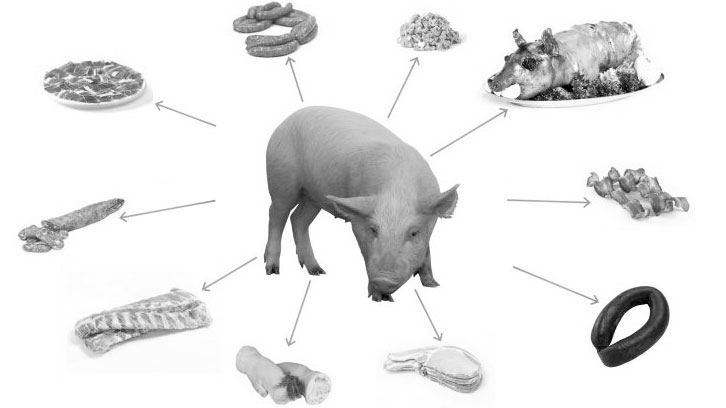Carbon and Water Footprint of the Pork Industry in Catalonia: From Feed/Birth to Final Product

In recent years society has been facing the problem of food health and damage to the environment. For that reason consumers are making increasingly pressing demands for evolution towards the generation of products that are more environmentally friendly.
As a primary source of protein and micronutrients, meat products are considered to be a fundamental element in the human diet. So much so that in the last forty years demand has risen significantly worldwide, reaching around 63 per cent within Europe. Also, among the main meat products in Europe, pork is the most widely consumed with an annual average of 31.8 kg per capita. However, in contrast to its socio-economic importance pork production is also responsible for around 26 per cent of total emissions by the farming sector in Europe. This shows the need for an in-depth study of environmental discharge associated with the pork production chain to move towards greater competitiveness, not only in economic terms but also in terms of the environment.
This study carried out an environmental analysis of the carbon (CF) and water (WF) footprints derived from pork production in Catalonia, taking into account primary data from different industries characteristic of the sector. The study was carried out from feed to final product so that all stages of the production process were considered.
The results show that the production of feed is most responsible for the global impact of the chain, contributing over 76 per cent independently of the environmental indicator under consideration. This is mainly due to the production of the different ingredients used. Transportation also has a major influence, albeit smaller.
Parallel to the environmental study, the SustainPork® programme has been designed as a self-evaluation tool which can be used by Catalan companies related to the pork industry to identify critical points in their production chains and act on them to obtain more competitive final products.
A detailed analysis of the results and the SustainPork® programme can be consulted in the scientific publication associated with this study.
Carles Martínez Gasol
Institute of Environmental Science and Technology (ICTA)
Jesus.Rives@uab.cat, Carles.Martinez@uab.cat
References
Noya, Isabel; Aldea, Xavier; Gasol, Carles M.; Gonzalez-García, Sara; Amores, Maria Jose; Colon, Joan; Pons, Sergio; Roman, Isabel; Rubio, Miguel A.; Casas, Eudald; Moreira, María Teresa; Boschmonart-Rives, Jesús. Carbon and water footprint of pork supply chain in Catalonia: From feed to final products. Journal of Environmental Management. 2016, vol. 171, p. 133-143. doi: 10.1016/j.jenvman.2016.01.039.


